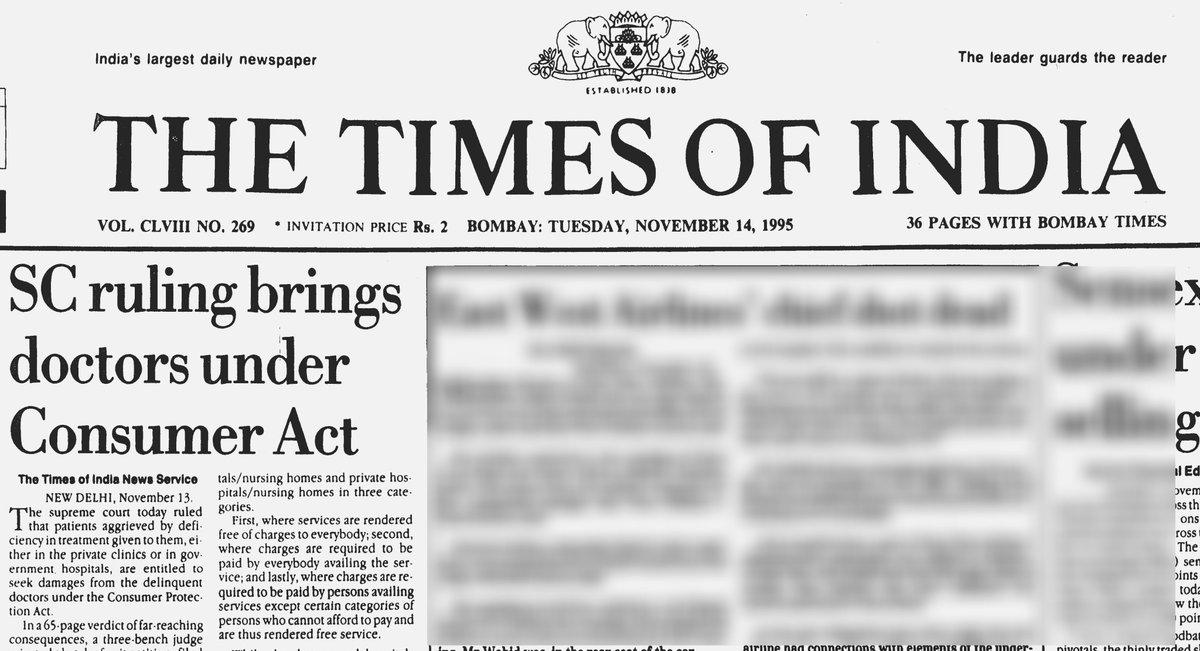
The misinformation propaganda over reservations by influential privileged-caste persons has reached comical depths. This warrants a short 'Explain Like I'm 5' primer on the philosophy of reservations, esp for decent UC folks who are indeed receptive to learning more.
Many anti-reservation polemic commentaries totally neglect to mention the primary goal of any affirmative action policy: proportionate representation of, & distribution of resources to, the different groups & communities which form a society.
Of course there was no great need for humans, esp once they ostensibly had become a 'civilized species' (or 'dharmic'?), to have such artificial divisions among themselves. But the socially dominant ppl & groups in the past did create these divisions, & here we are.
In the context of the Indian subcontinent such ppl were those who divided the society into varnas and jatis (now better known by the single term of 'caste'). These r centuries-old concepts, & have been with us forever.
Cut to 1947 and independence: some of the saner founders of the nation knew that the dominance of the historically privileged castes was SO inherent to & institutionalized in our society, that only a radical policy of representation could help undermine that brutal dominance.
This policy was what we know as reservations. The 1950 reservations policy recognized chiefly the sociopolitical underrepresentation of Dalits & Adivasis, and the 1980s policy recognized that of many other Bahujans ("OBCs")
It is thus this dominance and control by UC groups of socioeconomic capital and privilege, and the ensuing lack to inadequacy of representation of all other groups and communities, which the reservations policy primarily addresses.
So if in 2021 some privileged-caste ppl r saying that they have had "enough" of reservations, the least they can do is show us that the disproportionate dominance & control of capital and resources in India by UC groups has been vanquished..
... The least they can show us is that UC leaders & influencers are working hard to rid the society of casteism, of the persistent ideas of purity & pollution, of caste-based violence & atrocities, & also working to make our biased 'system' punish those indulging in such violence
And when they talk about numbers and statistics, the least they can do is tell the people of India what proportion of our population is UC, & what percentage of resources r controlled by them at present. #CasteCensus
But there's hardly any serious discussion of these aspects in their polemic commentaries. This makes their critiques less about justice & equality, & more about holding on to their historical caste-based privilege under the cloak of 'merit'
Of course societies are dynamic & undergo many kinds of changes all the time. Thus a policy like reservations which chiefly depends upon ensuring proper representation to different social groups, can certainly be fine-tuned with time
But instead of civilly working with DBA activists to discuss & deliberate such issues, most UC commentators r intent on scrapping reservations entirely or tinkering with them permanently - and take us back to the very state of affairs which created the prob in the 1st place
Intelligent critiques of reservations, like those of thinkers like Anand Teltumbde, do exist, It's sad that these r neglected in favor of divisive and dehumanizing polemics by UC influencers, like those of two TV presenters most recently 

I have not discussed in this thread many other relevant concepts, like caste privilege, institutional and structural casteism, casteism in non-Hindu communities, as well as the many absurdities in the mainstream understanding of "merit."
Will do that some other time, but there's also a lot of material out there if one looks around with an open eye and mind. For now will end with one last aspect which is quite imp: talking about reservations with kids & the young
One of the most problematic things that many adult UCs do is to misinform their kids about the reservations policy & to inculcate in them a militant attitude against this legislation & against their dalit bahujan adivasi peers.
This is coupled with an equally callous lack of instruction on the realities of casteism in contemporary India, and an honest assessment of the brutal history of caste & caste-based discrimination and atrocities perpetrated by UC groups
Kids and the young can often be convinced of something if it makes sense to innate human principles like justice and equality. But these kids do not even get a chance to appreciate why reservations as a policy was needed in the first place.
I have seen my own ideas of so many things, incl reservations, change & improve over time. If young ppl r exposed less to hateful rhetoric & more to compassionate, intelligent, humane analyses, positive changes in mindsets r possible.
It is up to decent UC persons to work on effecting such changes. And DBAs to help them in that when possible. Besides, for self-learning, BR Ambedkar's entire corpus of literature is always out there for you.
ccnmtl.columbia.edu/projects/mmt/a…
ccnmtl.columbia.edu/projects/mmt/a…
• • •
Missing some Tweet in this thread? You can try to
force a refresh





